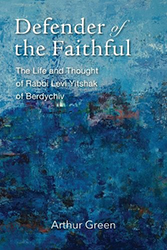In the introduction to their new translation of Martin Buber’s The Way of Humanity, Rabbi Bernard H. Mehlman and Gabriel E. Padawer list the three reasons why they embarked on this project: to provide a clear and elegant translation that avoids ungainly solecisms; to use gender-neutral language; and to offer readers a scholarly text complete with endnotes and explanations. The authors are successful on all three counts.
This translation serves as an excellent introduction to Buber’s thoughts and ideas. For those who have wrestled with the difficult language of Buber texts like I and Thou, this short collection of Hasidic tales and commentary is delightful in its clarity. The book includes a brief foreword by renowned Buber scholar Paul Mendes-Flohr, as well as an afterword that details the interesting origins of Buber’s essay in both Hebrew and German.
Buber was not a halachic Jew. His friend and collaborator, Franz Rosenzweig, affectionately called him a “reverential apikorous.” As brilliant as his commentary is, it is important to remember that the Hasidism presented here adheres to Buber’s particular universalist approach.
The book consists of six tales, each followed by Buber’s commentary. These tales are not randomly selected. Rather, Buber is charting a path to enlightenment. The first two stories are about finding one’s authentic self. The third illuminates the need to unify the self and avoid fragmentation. The fourth describes the importance of self-development. “In order to accomplish [a] major endeavor,” Buber writes, “one must find one’s way through the hustle and bustle of everyday living in order to reach the self.” In the fifth tale, Buber encourages us to be preoccupied not just with the self, but also with the world. This leads us to the sixth tale, in which the developed self, now in harmony with the world, is able to let God in.
Josh Hanft holds Advanced Degrees in English and Comparative Literature from Columbia University and curated the renowned reading series, Scribblers on the Roof, for over twenty years.





